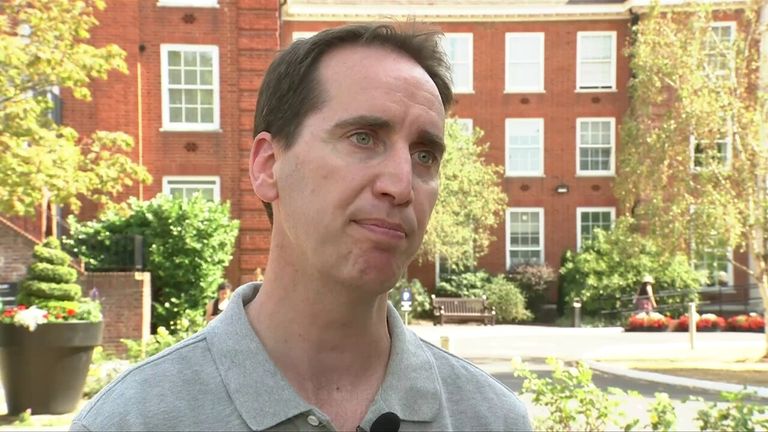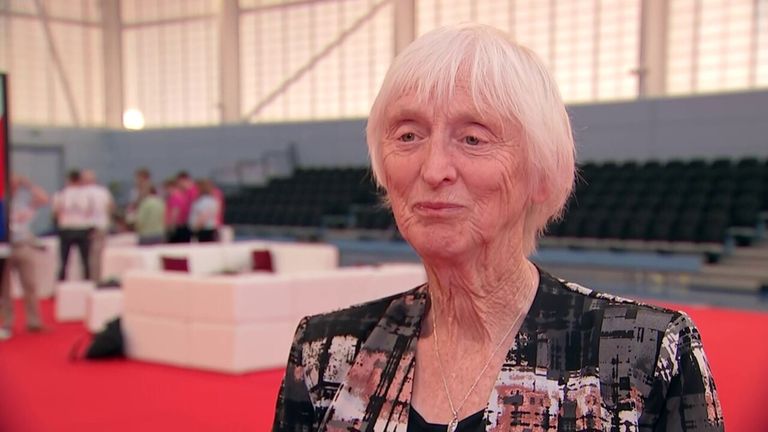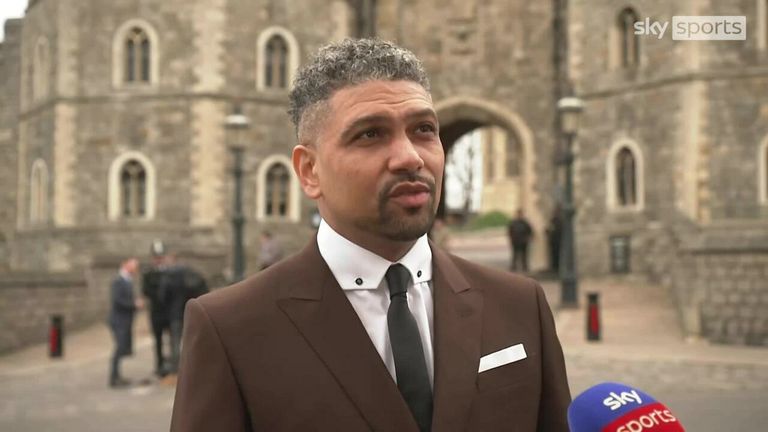Sarina Wiegman hopes the England team will be more racially diverse in the longer term.
Former Lionesses defender Anita Asante believes the pathway into the elite women’s game has to be reformed to achieve greater diversity, with just three of the 23 members of Wiegman’s Euro 2022 squad from Black, Asian or mixed heritage backgrounds.
England’s group opener against Austria marked a watershed moment for the women’s game with a predominantly young, female crowd of almost 69,000 packed into Old Trafford, home of Manchester United, highlighting the strides the women’s game has made in England in recent years.
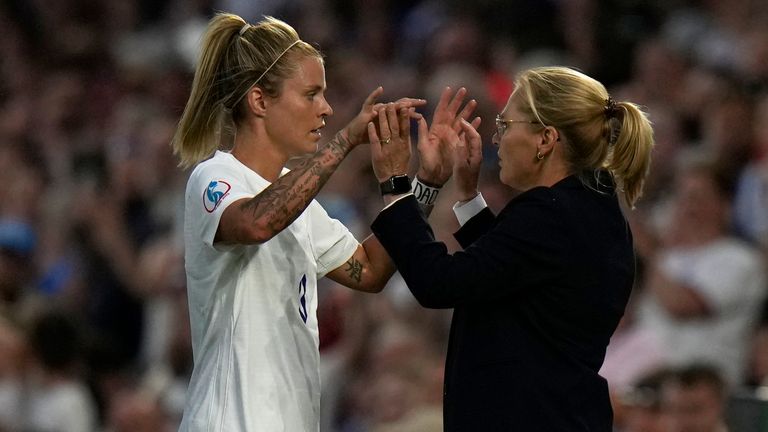
But there was also something else noticeable to a lot of people in England, and beyond – especially once it had been shared across social media: England fielded an all-white starting XI against Austria.
- Does the Women’s Euros have a diversity problem?
- England face Spain in Euro QFs | Wiegman: Covid absence not ‘worst nightmare’
- Listen & subscribe to the Sky Sports Women’s Euros podcast
- Women’s Euros: All you need to know
Writing in The Guardian, Asante said: “Young girls who cannot see anyone who looks like they do lack heroines to emulate – and that matters.”
She called for a more imaginative approach to scouting in urban and inner-city areas, and for more resources to be assigned to the scouting network in the women’s game.
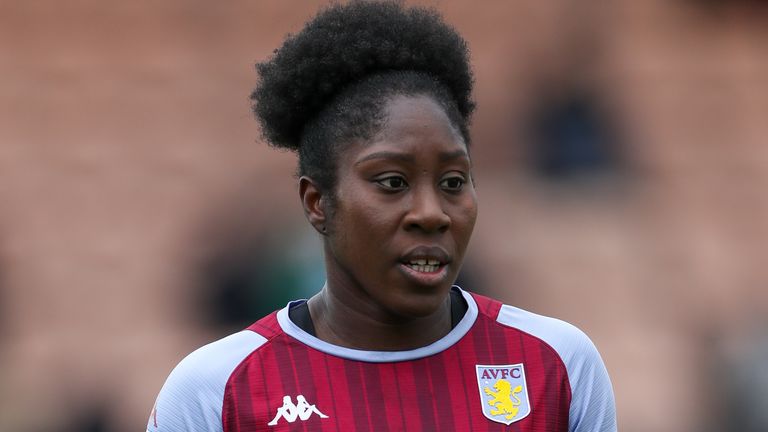
She also highlighted the problem around the often suburban location of club training grounds, which she said can make access more difficult for Back and white children from working-class backgrounds.
Asante, who on Tuesday was named as first-team coach at Bristol City, was at pains to point out her comments were not intended as a criticism of Wiegman or her squad, who face Spain in a Euro 2022 quarter-final in Brighton on Wednesday night.
The former Netherlands coach, speaking ahead of that match, said she hoped a more diverse talent pool would be available in the future.
Please use Chrome browser for a more accessible video player
“I think football needs inclusion and diversity,” Wiegman said.
“So absolutely, everyone who wants to be involved in football, in whatever position, play the game or do something else, should be welcome. I know the FA has set strategies in place to empower that, to get more diversity in the game, so that’s something for the longer term.
Williamson: Diversity an FA priority
England captain Leah Williamson said at the press conference ahead of facing Spain:
“We’re happy as a player group because a lot of the girls feel very passionately about it too. We all do, but I’ve heard a few speak very well to the FA and it was received as well as we’d hoped.
“It’s definitely a priority for them and we’re on the right path to make it ready for those young girls. This tournament is going to inspire so many more young girls to want to play football.
“Nobody should then be denied the opportunity to be involved. It’s something we feel passionate about and luckily so do the FA. Hopefully, we’ll see the effects in the future.”
“So I hope in the longer term we get more diversity, also in the national team.
“I think for now, for me I don’t care whether someone is Black, white, everyone knows that – I just pick the players that I think are the best to perform at the best level. That’s short term, but hopefully in the future there is more diversity.”
Please use Chrome browser for a more accessible video player
In May the Football Association announced plans, supported by the Premier League, designed to create a wider and more diverse talent pool for the women’s game, with better accessibility among five identified areas of improvement.
There is to be a wider national network of what will be called Emerging Talent Centres for girls aged eight to 16, and the FA’s director of women’s football Baroness Sue Campbell has expressed her confidence the plans and the ‘Discover My Talent’ project launched last summer will help create a “significant shift” in terms of diversity at the top end of the English women’s game.
The Professional Footballers’ Association has launched the ‘See It Achieve It’ campaign spearheaded by former Liverpool, Everton, Notts County and Brighton player Fern Whelan.
The aim of it is to create a network for current Women’s Super League players from ethnic minority backgrounds, in which they will receive peer-to-peer mentoring and be given bespoke support, and it says increasing the visibility of diverse role models is a primary goal.
The union says there are 29 black, Asian or mixed heritage players out of 300 in the WSL.
How diverse is Euro 2022?
The tournament has not yet revealed any figures based on diversity and Sky Sports News has contacted each of the participating football associations to request this information.
Germany told Sky Sports News they had two ethnically diverse footballers in their squad, Iceland and Belgium both reported one player. Austria do not have any non-white players in their squad, while Denmark said they do not hold that type of squad information.
But there has been a distinct lack of visible ethnic diversity on the field…
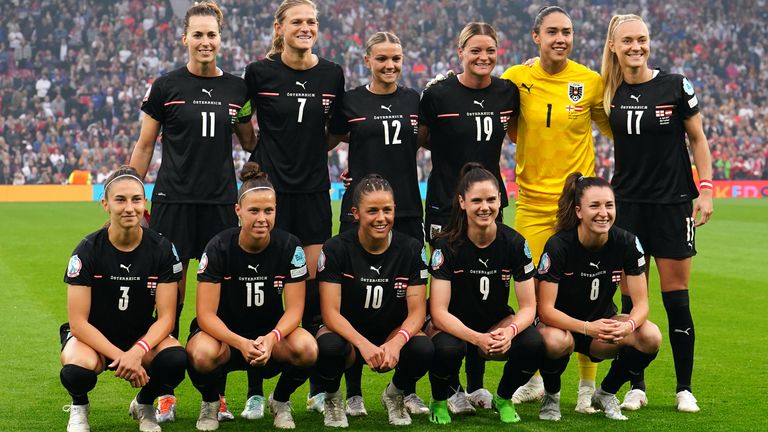
How does Euro 2022’s lack of diversity compare?
Research presented by Leon Mann MBE at the ‘D-Word 4’ conference held by the Black Collective of Media in Sport offers some context to England’s numbers.
Mann revealed Gareth Southgate’s England squad for last summer’s men’s Euros featured 11 players out of 26 – 42 per cent – of Black or mixed heritage.
Please use Chrome browser for a more accessible video player
According to the Black Footballers Partnership – co-founded by QPR duo Les Ferdinand and Chris Ramsey, ex- Birmingham and Derby full-back Michael Johnson and former top-flight women’s player Eartha Pond – some 43 per cent of players in the Premier League are Black.
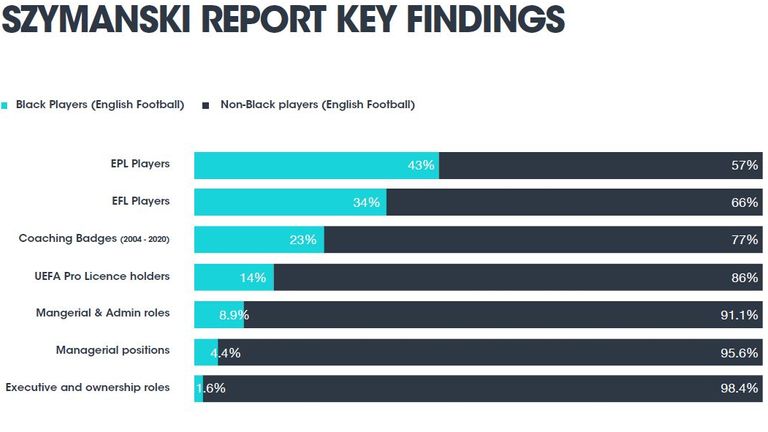
But when it comes to the Women’s Super League, the top division of women’s football in England, the Professional Footballers’ Association last week revealed just 29 out of the WSL’s 300 players – 9.7 per cent – are from a diverse ethnic background.
In Phil Neville’s England squad at the last Women’s World Cup, there were two ethnically diverse players in the squad – Nikita Parris and Demi Stokes. The same two players are in Wiegman’s squad and remained unused substitutes in England’s win against Austria.
These numbers provide a sharp reminder of the chronic under-representation issue at the elite end of the girls’ and women’s game.
British South Asians in Football
For more stories, features and videos, visit our groundbreaking South Asians in Football page on skysports.com and South Asians in the Game blog and stay tuned to Sky Sports News and our Sky Sports digital platforms.


